
ईएमआई को समझना: तात्पर्य , गणना एवं अन्य कारकों का पूर्ण रूप
29 फरवरी 2024
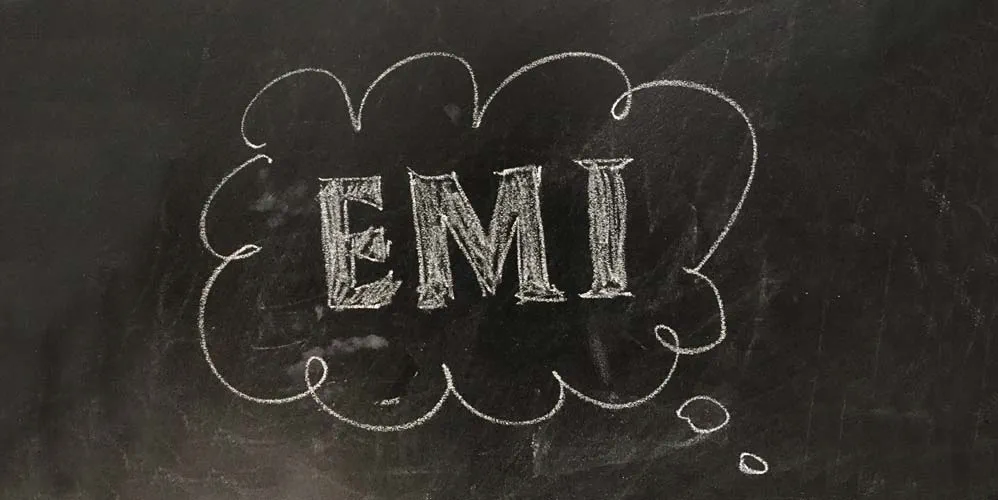
Table of Content
-
ईएमआई का पूर्ण रूप
-
EMI Meaning & Definition
-
ईएमआई कैसे कार्य करता है?
-
ईएमआई की गणना कैसे की जाती है
-
फ्लैट रेट विधि से ईएमआई की गणना कैसे की जाती है ?
-
घटती हुई शेषराशि (रिड्यूस बैलेंस) विधि से ईएमआई की गणना कैसे की जाती है ?
-
ईएमआई को प्रभावित करने वाले कारक
-
ईएमआई- क्या करें एवं क्या न करें
-
अक्सर पूछे जाने वाले प्रश्न (एफएक्यू )
ईएमआई का पूर्ण रूप क्या है?
ईएमआई मासिक किस्तों पर आधारित है जिसे उधारकर्ता प्रत्येक महीने निर्धारित तिथि पर एक निश्चित अवधि तक ऋणदाता को भुगतान किया जाता है।
ईएमआई का अर्थ एवं इसकी परिभाषा
स्मार्टफोन से लेकर कार या किसी अपार्टमेंट के लिए दिए जाने वाले ऋण के लिए, ईएमआई किसी व्यक्ति का सबसे अच्छा वित्तीय सहायक होता है। ईएमआई , आपको किसी निश्चित अवधि में अपनी प्रबंधन योग्य क्षमता के अनुसार ली गई ऋण राशि को वापस करने में सहायता प्रदान करता है. यद्यपि ईएमआई काफी प्रचलित और आपके अनुकूल होता है, फिर भी कई लोगों को इस बारे में संदेह होता है और ईएमआई संबंधी सीमित ज्ञान होने के कारण वे ऋण लेने में संकोच करते हैं.
अत: ईएमआई क्या है ? यह मासिक भुगतान का एक सेट है जो उधारकर्ता द्वारा ऋणदाता को प्रत्येक माह की निर्धारित तिथि पर प्रदान किया जाता है। ईएमआई, ब्याज और मूलधन के गणना की राशि है जिसका भुगतान एक निश्चित समय तक किया जाता है, जिसे ऋण अवधि कहा जाता है।
ईएमआई कैसे कार्य करता है ?
ईएमआई के अंतर्गत गणना की गई राशि को विविध कारकों द्वारा निर्धारित किया जाता है।
उधार लिया गया मूलधन
उधारकर्ता द्वारा ऋण के रूप में ली गई राशि।
ब्याज दर
बैंकों और वित्तीय संस्थानों की अलग-अलग ब्याज दरें होती हैं, उधार लेने के समय लागू ब्याज दर आपकी ऋण राशि पर निर्धारित की जाती है। बैंक द्वारा विभिन्न प्रकार के ब्याज ऑफर किए जाते है। नियत ब्याज दर बाजार की स्थिति पर ध्यान दिये बगैर पूर्वनिर्धारित अवधि तक नियत होती हैं। ब्याज की फ्लोटिंग दर में बाजार की स्थितियों के अनुरूप परिवर्तन हो जाता है। बाजार की स्थिति के आधार पर ब्याज दर बढ़ या घट सकती है।
ऋण अवधि :
पे ऑफ में लगने वाला समय
मासिक/वार्षिक आधार पर :
यह उधारकर्ताओं से ब्याज वसूलने की आवधिकता के संदर्भ में है।
यह भी पढ़े वैयक्तिक ऋण पर ईएमआई की गणना करने के स्मार्ट तरीके
ईएमआई की गणना कैसे करें
जैसा कि चर्चा की गई है, ईएमआई के दो घटक हैं, ब्याज़ और मूल राशि. ऋण अवधि में बढ़े मूलधन पर ब्याज लिया जाता है
फ्लैट रेट विधि और रिड्यूस बैंलेंस विधि के लिए ईएमआई की गणना कैसे की जाती है? आइए समझते हैं कि इन सभी का क्या अर्थ है.
फ्लैट रेट विधि के लिए ईएमआई की गणना कैसे की जाती है?
क्रमिक चुकौती के मामले में, प्रत्येक पुनर्भुगतान पर ब्याज दर, मूल राशि की गणना करके ली जाती है यह ईएमआई गणना तब निर्धारित की जाती है जब पूरे ऋण को मूलधन में कुल ब्याज के साथ शामिल किया जाता है। ईएमआई किश्तों की कुल संख्या को ऋण अवधि में समय के अनुसार विभाजित किया जाता है। फ्लैट ब्याज दर वाला लोन पर्सनल और ऑटो लोन पर प्रभावी होता है। ऋण पर ब्याज का भुगतान कुल मूल राशि को कवर करता है, इसलिए यदि उधारकर्ता आरंभ में कुछ भुगतान करना चाहता है, तो फ्लैट ब्याज दर रिड्यूस बैलेंस ऋण की तुलना में अधिक प्रभावी हो जाती है।
रिड्यूस बैलेंस विधि के लिए ईएमआई की गणना कैसे की जाती है
इसमें ब्याज का भुगतान बकाया मूलधन द्वारा निर्धारित किया जाता है। ईएमआई ब्याज और मूलधन के भुगतान घटक में क्रमिक परिवर्तन देखा जाएगा। ईएमआई को अवधि की शुरुआत में ब्याज भुगतान के बड़े हिस्से द्वारा कवर किया जाता है, जिससे मूलधन कम हो जाता है। ब्याज राशि धीरे-धीरे पुनर्भुगतान के दौरान समय के साथ कम हो जाती है जबकि मूलधन के अनुपात में वृद्धि होने लगती है। यह घटती हुई शेषराशि वाला गृह ऋण संबंधी ईएमआई, क्रेडिट कार्ड और ओवरड्राफ्ट सेवाओं में काफी प्रचलित है।
बैंक द्वारा वार्षिक, मासिक या दैनिक घटते शेष राशि (रिड्यूस बैलेंस) राशि के माध्यम से होम लोन पर ब्याज दर की गणना की जाती है। वार्षिक घटने वाली विधि के लिए वर्ष के अंत में मूलधन पर ब्याज कम हो जाता है। ऋणदाता मूलधन के एक निश्चित हिस्से पर ब्याज का भुगतान करना जारी रखता है। यह वार्षिक रिड्यूस प्रणाली के अनुसार मासिक ईएमआई में कमी लाता है।
यह भी पढ़ें डेबिट कार्ड में ईएमआई की कार्यप्रणाली
मासिक रिड्यूस प्रणाली में ईएमआई के भुगतान के साथ, मूलधन, जिसके लिए आप ब्याज का भुगतान करते हैं में मासिक रूप से कमी हो जाती है।
दैनिक रिड्यूस प्रणाली में वैसे मूलधन में दैनिक कमी होती है जिसके लिए आप ब्याज का भुगतान करते हैं। कटौती उस दिन से शुरू होती है जब से आप ईएमआई का भुगतान शुरू करते हैं। ईएमआई की दैनिक रिड्यूस प्रणाली, मासिक रिड्यूस प्रणाली से कम है और वर्ष की गणना फरवरी या लीप वर्ष में भी 365 दिनों के रूप में की जाती है
ईएमआई को प्रभावित करने वाले कारक
ऋण का किफ़ायती होना इसके मूलधन और ब्याज की राशि पर आधारित ईएमआई पर निर्भर होता है। इसकी योजना इस प्रकार बनायी जाय ताकि यह आपके मासिक बजट को प्रभावित न करे। इसलिए, ब्याज दर प्रभावित करने वाले कारकों को ध्यान में रखना चाहिए जो विभिन्न ऋणदाताओं के लिए अलग अलग होते है।
MCLR Rates :
मार्जिनल कॉस्ट ऑफ फंड्स बेस्ड लेंडिंग रेट (MCLR), वह न्यूनतम ब्याज दर है जिस पर बैंक उधार दे सकता है. परिचालन लागत, नकद आरक्षित अनुपात (सीआरआर) और सीआरआर और ऋण अवधि प्रीमियम पर किए गए किसी भी नकारात्मक पहलू के साथ धनराशि की सीमांत लागत जैसे कारक दर को प्रभावित करते हैं। ब्याज दरों में संशोधन के लिए द्वारा प्रतिवर्ष एमसीएलआर की समीक्षा की जाती है
विभिन्न रुचि प्रकार
नियत ब्याज दरें, फ्लोटिंग ब्याज दरें और मिश्रित ब्याज दरें, इन के द्वारा सभी ईएमआई दर निर्धारित की जाती हैं। फ्लोटिंग रेट भारतीय रिजर्व बैंक (RBI) पर आधारित होता है और RBI द्वारा तय किए जाने के अनुरूप अलग-अलग होता है. नियत ब्याज दरें एक निश्चित अवधि तक अपरिवर्तित रहती हैं। मिश्रित ऋण का आरंभ नियत दर पर होता है और इसे फ्लोटिंग दरों पर स्विच करते हैं
लोन-टू-वैल्यू (LTV) अनुपात
एलटीवी अनुपात उस संपत्ति के मूल्य के प्रतिशत को संदर्भित करता है जिसे आप अपने ऋणदाता से ऋण राशि के रूप में लेना चाहते हैं। एलटीवी अनुपात इस मायने में महत्वपूर्ण है कि इससे ऋणदाता इसका मूल्यांकन कर सकता है कि वे आपकी संपत्ति की कीमत के बदले ऋण के रूप में कितनी राशि की मंजूरी दे सकते हैं और यह सुनिश्चित कर सकते हैं कि आपकी ऋण राशि आपकी चुकौती क्षमता, या संपत्ति की कीमत से अधिक न हो।
क्रेडिट स्कोर
क्रेडिट विवरण आपके वित्तीय अनुशासन को दर्शाता है। यदि क्रेडिट स्कोर 700 से कम है, तो यह दर्शाता है कि आप एक उच्च क्रेडिट-जोखिम वाले उधारकर्ता हैं और आपको ऋण पर उच्च ब्याज दर पर ऋण दिया जाएगा। दूसरी ओर, कम क्रेडिट जोखिम वाले लोगों को भी पूर्व-ऋण प्रदान की जाती है।
ये भी पढ़ें सिबिल स्कोर क्यों महत्वपूर्ण है?
संपत्ति की स्थिति
यदि आप गृह ऋण ले रहे हैं, तो स्थानीय स्तर पर इस संपत्ति की स्थिति, और कनेक्टिविटी इसके पुनर्विक्रय मूल्य में वृद्धि करेगी। यदि आप कम मूल्य वाले क्षेत्र में कोई संपत्ति खरीदते हैं तो इसका पुनर्विक्रय मूल्य कम होगा। उच्च पुनर्विक्रय मूल्य वाली संपत्तियों में कम पुनर्विक्रय मूल्य वाले लोगों के विपरीत ऋण स्वीकृति की संभावना अधिक होती है।
उधारकर्ता का कार्य
आपकी नौकरी का स्थायित्व और आय का भी ऋण की स्वीकृति से बहुत सरोकार होता है। वेतनभोगी वर्ग के अंतर्गत मध्य शीर्ष स्तर के वेतनभोगी पेशेवर, पीएसयू और सरकारी कर्मचारी कम जोखिम वाले होते हैं; स्व-नियोजित वर्ग के अंतर्गत डॉक्टरों और सीए को कम जोखिम वाला माना जाता है
ऋण की अवधि
वह अवधि जिसमें आपको अपने ऋण और ब्याज राशि की चुकौती करनी होगी।
ईएमआई – क्या करें या क्या न करें
ऋण लेते समय कुछ तथ्यों पर विचार करना आवश्यक होता है, जिससे आप अपने ऋण लेने और चुकौती प्रक्रिया को आसान बना सकते हैं। हमने बिना किसी बाधा के लोन एप्लीकेशन और ईएमआई प्रक्रिया के माध्यम से ऋण लेने में आपकी मदद करने के लिए “क्या करें” और “क्या न करें” की सूची तैयार की है।
क्या करें
- ऋण तभी लें जब आप इसे चुकाने में सक्षम हों
- पुनर्भुगतान योजना तैयार करें
- ऋणदाता के चयन से पूर्व अच्छी तरह से बाजार का सर्वेक्षण करें
- सभी नियम और शर्तों की जाँच करें
क्या न करें
- चूक न करें, और चुकौती समय पर करें।
- एक ही समय में अनेक ऋण लेने का जोखिम न उठाएं।
- गैर-मान्यता प्राप्त उधारदाताओं पर भरोसा नहीं किया जाए, वैध उधारदाताओं से ऋण लेना चाहिए।
- किसी ऋणदाता का चयन करते समय सिर्फ ब्याज की दरों का कम होना ही महत्वपूर्ण नहीं होता है इसमें प्रतिभूति, इसकी अवधि तथा ऋण की चुकौती करने में आपकी क्षमता मायने रखती है।
Also Read: How to Calculate EMI for Bike Loan: Tips and Tricks
अक्सर पूछे जाने वाले प्रशन FAQs
ईएमआई का पूर्ण रूप क्या है
बैंकिंग के क्षेत्र में ईएमआई का पूर्ण रूप समान मासिक किश्त होता है।
क्या ईएमआई अच्छा या खराब।
ईएमआई एक सुविधाजनक माध्यम है जो ऋण की चुकौती को सक्षम बनाता है. इसलिए, यह कहा जा सकता है कि बड़े ऋणदाता के लिए यह एक अच्छी प्रक्रिया है
क्या ईएमआई और लोन में अंतर है?
ऋण वह राशि है जो बैंक या वित्तीय संस्थान किसी व्यक्ति को उधार देता है। ईएमआई एक निश्चित अवधि के दौरान सहमत ब्याज दर पर ऋण के लिए भुगतान की जाने वाली समान मासिक किस्त होती है।
क्रेडिट कार्ड से ईएमआई की कटौती कैसे की जाती है ?
अगर आप रु. 10,000 का उत्पाद खरीद रहे हैं, जो कि इलेक्ट्रॉनिक्स से लेकर फर्नीचर तक कुछ भी हो सकता है, इसे ईएमआई में परिवर्तित किया जा सकता है. इस ईएमआई की गणना बैंक द्वारा ली जाने वाली ब्याज़ दर, ऋण अवधि और उधारकर्ता द्वारा प्रदान किए गए डाउन पेमेंट पर आधारित होती है
यदि मैं समय पर ऋण का भुगतान न कर सका तो क्या होगा ?
यदि आप ईएमआई का भुगतान नहीं कर पाते हैं, तो इससे आपके क्रेडिट स्कोर को नुकसान होगा । यदि आप एक बार चूक जाते हैं, तो आपको डिफॉल्टर के रूप में नहीं माना जाएगा। बैंक द्वारा लगातार तीन रिमाइंडर जारी किया जाता हैं। यदि आप देर से दंड शुल्क के साथ राशि जमा कर देते हैं, तो आप फिर से नियमित ऋणकर्ता हो जाते हैं। यदि नहीं, तो बैंक द्वारा आपको नोटिस भेजा जाता हैं। यदि आप 90 दिनों के भीतर ईएमआई का भुगतान करते हैं तो आपको मामूली चूककर्ता माना जाएगा। यदि आप 90 दिनों से अधिक अवधि तक ऋण का भुगतान करने में विफल रहते हैं, तो यह एक बड़ी चूक है, और आपके ऋण खाते को बैंक द्वारा गैर-निष्पादित परिसंपत्ति (एनपीए) के रूप में वर्गीकृत किया जाता है।
Popular Articles
Related Articles


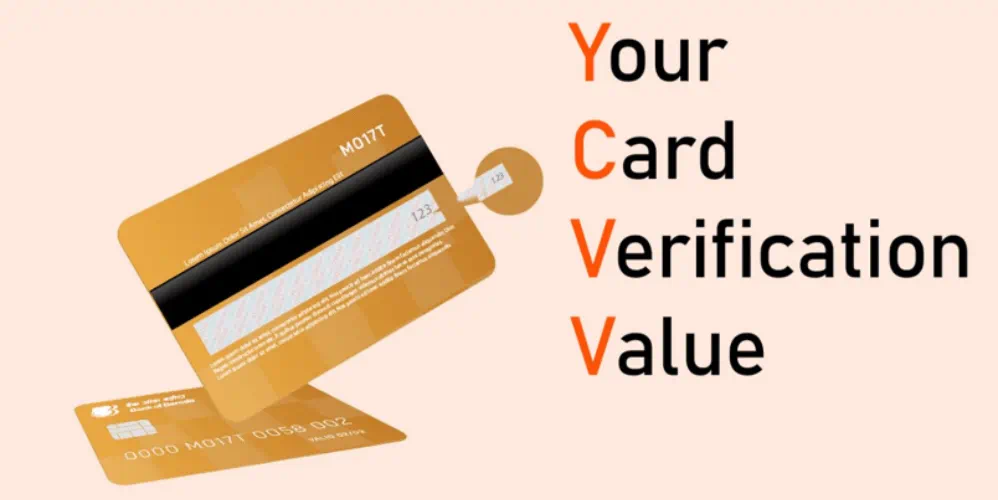
What is CVV on a Debit Card? Understanding Its Importance and Security Features
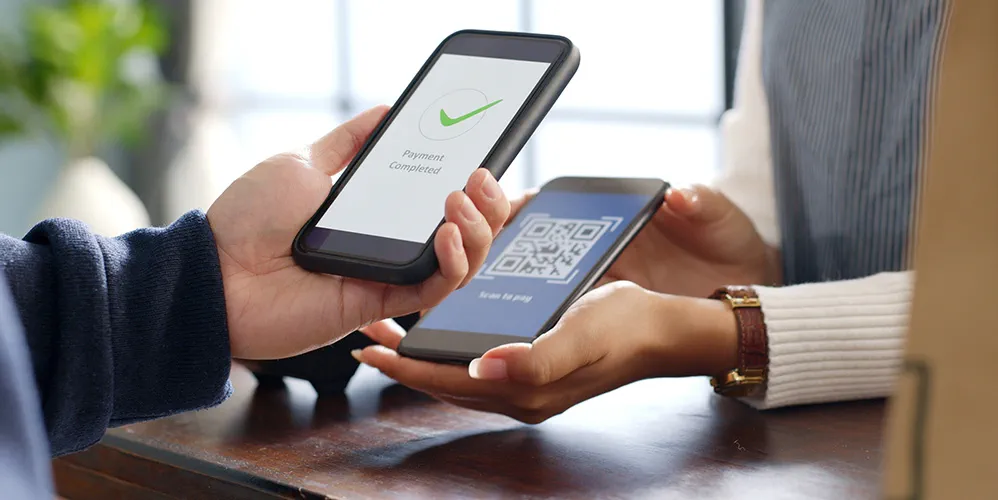

How to Update Your FASTag KYC: Step-by-Step Guide for Online & Offline Methods

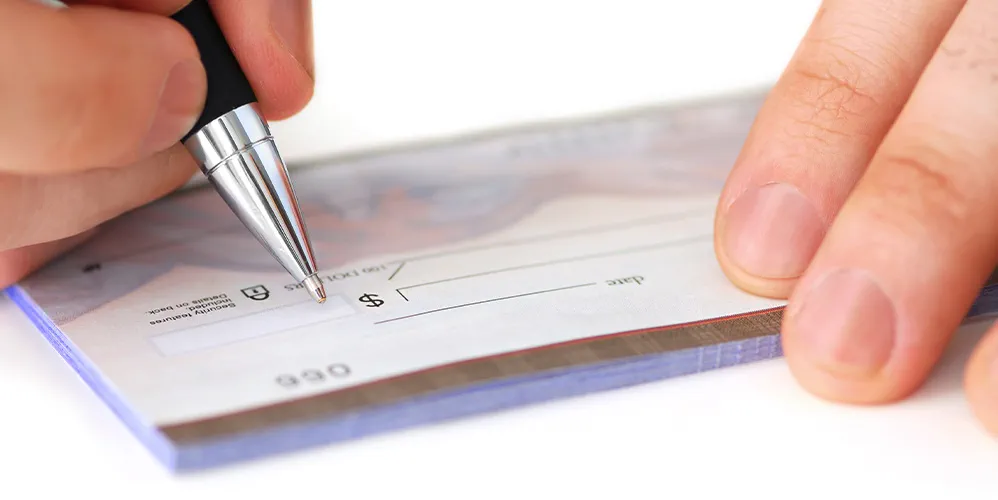
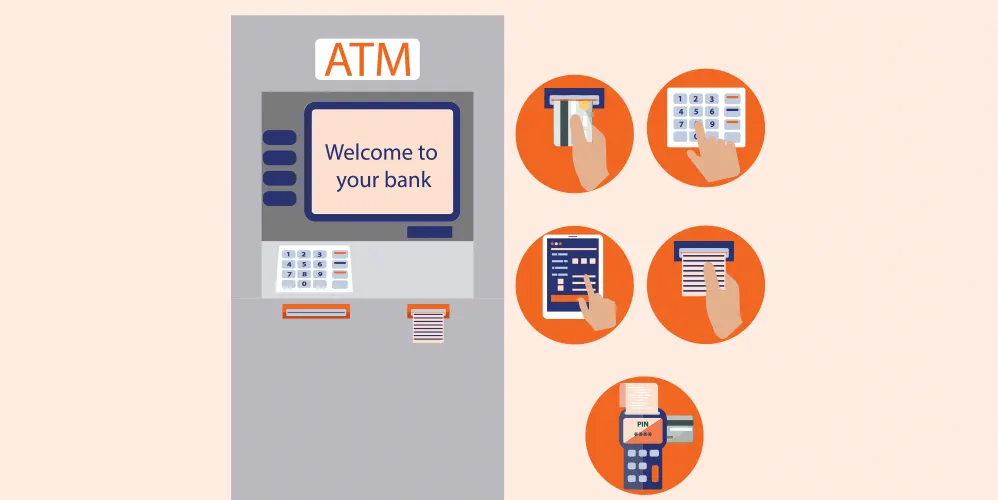

The Importance of Pension Funds: Secure Your Future with Steady Retirement Income

-
डिस्क्लेमर
इस लेख/इन्फोग्राफिक/चित्र/वीडियो की सामग्री का उद्देश्य केवल सूचना से है और जरूरी नहीं कि यह बैंक ऑफ बड़ौदा के विचारों को प्रतिबिंबित करे। सामग्री प्रकृति में सामान्य हैं और यह केवल सूचना मात्र है। यह आपकी विशेष परिस्थितियों में विशिष्ट सलाह का विकल्प नहीं होगा । बैंक ऑफ बड़ौदा और/या इसके सहयोगी और इसकी सहायक कंपनियां सटीकता के संबंध में कोई प्रतिनिधित्व नहीं करती हैं; यहां निहित या अन्यथा प्रदान की गई किसी भी जानकारी की पूर्णता या विश्वसनीयता और इसके द्वारा उसी के संबंध में किसी भी दायित्व को अस्वीकार करें। जानकारी अद्यतन, पूर्णता, संशोधन, सत्यापन और संशोधन के अधीन है और यह भौतिक रूप से बदल सकती है। इसकी सूचना किसी भी क्षेत्राधिकार में किसी भी व्यक्ति द्वारा वितरण या उपयोग के लिए अभिप्रेत नहीं है, जहां ऐसा वितरण या उपयोग कानून या विनियमन के विपरीत होगा या बैंक ऑफ बड़ौदा या उसके सहयोगियों को किसी भी लाइसेंसिंग या पंजीकरण आवश्यकताओं के अधीन करेगा । उल्लिखित सामग्री और सूचना के आधार पर किसी भी वित्तीय निर्णय लेने के लिए पाठक द्वारा किए गए किसी भी प्रत्यक्ष/अप्रत्यक्ष नुकसान या देयता के लिए बैंक ऑफ बड़ौदा जिम्मेदार नहीं होगा । कोई भी वित्तीय निर्णय लेने से पहले अपने वित्तीय सलाहकार से सलाह जरूर लें।
ईएमआई को समझना: तात्पर्य , गणना एवं अन्य कारकों का पूर्ण रूप
ईएमआई मासिक किस्तों पर आधारित है जिसे उधारकर्ता प्रत्येक महीने निर्धारित तिथि पर एक निश्चित अवधि तक ऋणदाता को भुगतान किया जाता है।
ईएमआई को समझना: तात्पर्य , गणना एवं अन्य कारकों का पूर्ण रूप
ईएमआई मासिक किस्तों पर आधारित है जिसे उधारकर्ता प्रत्येक महीने निर्धारित तिथि पर एक निश्चित अवधि तक ऋणदाता को भुगतान किया जाता है।

